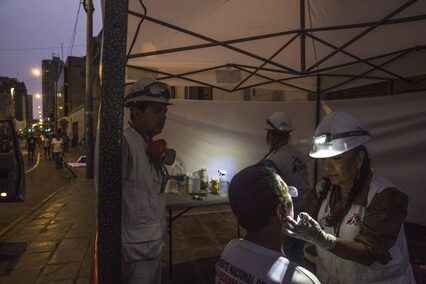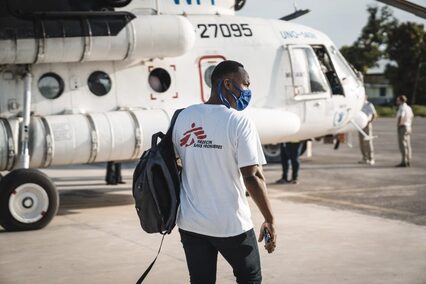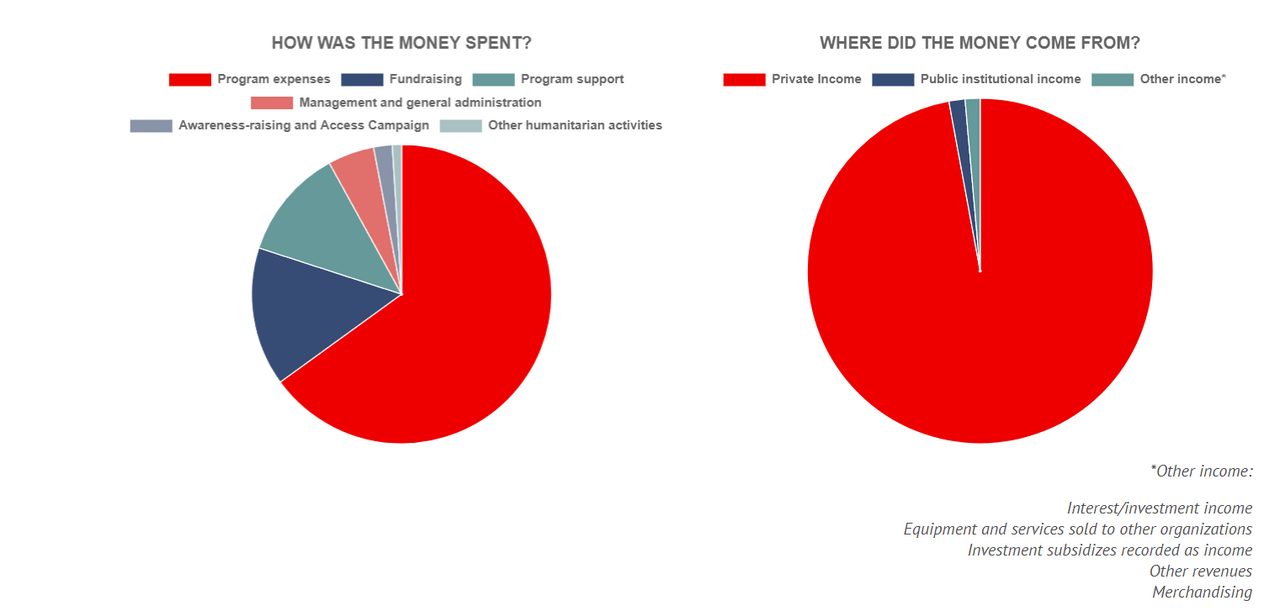Executive Brief
Director of Development
Doctors Without Borders/Médecins Sans Frontières
About Doctors Without Borders/Médecins Sans Frontières
Doctors Without Borders/Médecins Sans Frontières (MSF) is an international emergency medical humanitarian organization founded by doctors and journalists in 1971. The teams go where people’s needs are greatest to provide neutral, impartial, and independent emergency healthcare to people affected by disaster, disease, conflict and exclusion. MSF also bears witness, amplifying patient and staff experiences and speaking out to bring abuses and intolerable situations to the public eye. Around 63,000 people work for MSF in over 70 countries. More than 80 per cent of staff are hired in the countries in which MSF works. They offer basic healthcare, perform surgery, address epidemics, rehabilitate and run hospitals and clinics, carry out vaccination campaigns, operate nutrition centres, provide mental healthcare and offer training to local medical staff. MSF works with communities and often in support of local health authorities. Human connections are at the heart of their work, and their medical staff are able to offer care to people in need of assistance thanks to a vast network of staff and supporters.
MSF Principles
Impartiality: All human beings are equally susceptible to suffering and no one should be deprived of the medical care they need. Being impartial means MSF delivers free medical care to people who need it, giving priority to those in the most serious and immediate danger. It means they do not discriminate according to nationality, race, gender, identity, religious beliefs, class, political opinion or any other affiliation.
Neutrality: Neutrality means MSF does not take sides in conflict but remains politically neutral. In conflict situations, they go where people’s medical needs are greatest and strive to provide care according to people’s level of need, not which ‘side’ they are on. In the ward of one of our hospitals, you might find wounded civilians alongside injured soldiers from opposing sides. Hostilities and weapons must be left at the gate.
Independence: Over 90 per cent of MSF’s income is from private donors, mainly members of the public. This financial independence enables them to respond quickly and based on need alone. They will not take funding that requires them to make decisions based on anyone else’s political, military or financial considerations, or on anything other than their own assessment of people’s humanitarian needs.
Medical ethics: MSF is guided by medical ethics when carrying out their work – in particular, the duty to provide care without causing harm to individuals or groups. MSF aims to provide high-quality, impartial care and to act always in the best interest of patients while respecting their confidentiality and their right to make their own decisions. When medical assistance is not enough, MSF may provide shelter, water and sanitation, food or other services.



MSF in Canada
Doctors Without Borders/Médecins Sans Frontières (MSF) Canada is a vital link between their medical humanitarian activities around the world and a network of supporters, humanitarians and medical professionals in Canada who help make this work possible.
The MSF Canada national office is located in Toronto. The office in Montreal supports the national office in recruiting Canadian professionals for assignments around the world, as well as doing fundraising and communications work.
The recruitment and placement team engages and prepares qualified and talented professionals to join MSF’s teams abroad, while fundraisers connect MSF medical programs with the resources needed to carry out their work. Meanwhile, humanitarian affairs specialists advocate to the decision makers in Canada who can help make a difference in their patients’ ability to obtain medical care.
MSF Canada also provides crucial added value to MSF's medical work by pursuing innovations to overcome the challenges teams face while trying to deliver needed medical care to people in under-resourced settings. They have led initiatives such as telemedicine and e-learning, tapping into Canadian expertise, networks, and know-how to improve patient care.
Canadians first came together to create an MSF association in 1989, and Canada formally joined the international MSF movement in 1991.
Impact and accountability
Thousands of Canadians generously support Doctors Without Borders/Médecins Sans Frontières (MSF), sharing our values and thier commitment to assist people facing crises around the world. They are also committed to working as efficiently as possible and maintaining transparency about how they spend the money donated for medical humanitarian care.
In 2021, MSF spent more than 80 per cent of money raised globally on their medical projects and advocacy work. Roughly five per cent was spent on administration costs. The rest was reinvested in fundraising.

Current Strategic Plan
MSF Canada in 2023 will contribute directly to medical humanitarian activities and help create a dynamic MSF movement responsive to demographic, economic, technological, environmental and socio-political change. MSF Canada provides leadership in the areas of climate environment and health, transformation and innovation, telemedicine, safety of project staff and medical advocacy.
To learn more about MSF Canada's Strategic Plan, visit here:
Governance
MSF is a vibrant movement of people around the world who share a common purpose: to alleviate human suffering and offer medical humanitarian care to those who need it most.
Each of the 25 MSF sections is an association whose members shape and safeguard the work of their own offices. Together they direct the MSF movement. This includes the MSF Canada association.
The MSF Canada Association
In Canada, MSF association members elect a board of directors, who govern on their behalf.
The board is ultimately responsible for what MSF Canada does. It appoints their executive director, takes responsibility for the actions of MSF Canada and works to ensure the MSF principles are respected.
The board delegates the implementation of strategy to the MSF Canada management team, who run the office day-to-day.
If you are a member of the MSF Canada association, you can access the association website here. If you want to become an association member, please check the eligibility criteria here.
The Movement
Elected representatives from Canada meet with colleagues from the other MSF associations to have global discussions that shape our work. During the annual international general assembly, the international president is appointed, and an international board chosen. They are responsible for bringing coherence to the movement.

